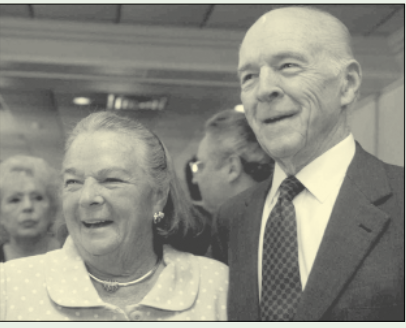AVATARS FOR KIDS
Spring 2018
In May 2017, Cris Colaluca graduated from Mohawk Junior-Senior High School in Bessemer, Pa. He’s among the first in the country to earn his diploma with the help of a robot. VGo is a 4-foot, roughly 20-pound, remotely controlled avatar with a video screen face and wheels; it allows immobile patients to participate in experiences they normally would miss.
For his senior project, Colaluca, 19, started a GoFundMe campaign in order to buy three VGos for Children’s Hospital of Pittsburgh of UPMC, where he has been a patient for years.
As a boy, Colaluca was diagnosed with electrical status epilepticus during slow-wave sleep (ESESS), a rare form of epilepsy syndrome that typically develops in childhood. In addition to experiencing seizures while asleep, ESESS patients struggle to understand speech and language (what’s known as receptive dysphasia), as well as to express themselves in speech (expressive dysphasia).
Colaluca’s complications prevented him from attending school beginning in the second grade. He felt isolated from his peers, and his education suffered. But that changed in seventh grade when Mohawk administrators ordered him a VGo. Now he is paying the favor forward by donating to Children’s.
“I was thinking it would help the kids go outside their rooms and explore and do something they can’t really physically do,” Colaluca says.
His GoFundMe campaign is sponsored by VecnaCares, the nonprofit branch of Massachusetts-based Vecna Technologies, which manufactures VGo. The Verizon Foundation and country music artist Jimmy Wayne helped promote the campaign.
In the end, Colaluca’s senior project overshot its goals, raising enough for five robots. The first three went to Children’s: two donated by the Verizon Foundation and one by Pat McAfee, a Pittsburgh native and retired Indianapolis Colts player. The GoFundMe donations bought two VGos for Colaluca’s alma mater, Mohawk Area School District. (The campaign is still active.)
At Children’s, the robots will be used to help patients connect with life outside the hospital room—keeping in touch with family and friends, continuing with school, and preparing for medical events through virtual tours of spaces like operating and waiting rooms. Users see through VGo’s camera, and with a computer or iPad, they can direct the robot to look up, down, and from side to side. The user’s face appears on the video screen as though he is talking on Skype. Microphones allow the robot to pick up sounds in its environment, and a speaker broadcasts the user’s voice.
Andrew Urbach, professor of pediatrics at Pitt Med, has treated Colaluca through the years. He has seen how the avatar transformed his patient’s life. “It’s a part of him,” Urbach says. “It gave him the freedom to develop as a person, and it changed him. I think that’s where his passion comes from and why he wants other individuals who are struggling with similar issues . . . to have this available.”
Vecna will donate a VGo for Cris Colaluca’s use, as well. (The Colaluca family credits business author Eva Rosenberg for helping make this happen.) That new one will go off to college with Colaluca in the fall.
Booster Shot
From 2008 to 2012, 434 infants died in Allegheny County—that’s slightly worse than the national average. And situations are more dire for African Americans. The county’s racial disparity in infant mortality is 27 percent higher than the nation’s average.
In an effort to decrease infant mortality, the Richard King Mellon Foundation granted $4 million to Magee-Womens Research Institute and Foundation (MWRIF) to support the Magee Obstetrical Maternal Infant Database (MOMI) and $1 million to MWRIF to support basic research relating to infant mortality. Working with MWRIF, Pitt and the RAND Corporation received separate grants of $750,000 and $625,000, respectively, to create algorithms to predict or score mortality risk.
The Mellon Foundation also granted $5 million to establish the Magee Prize to recognize innovative women’s health research. This October, the first award will be presented at a new international summit to be held in Pittsburgh, which will convene scientific and thought leaders in reproductive sciences and women’s health research.
A team led by Pitt’s Fuchiang (“Rich”) Tsui, associate professor of biomedical informatics, will use the Mellon grant to develop predictive models that estimate risk of infant mortality. Using these models, RAND will develop intervention approaches that more effectively reduce risk.
“We hope to be a leading advocate for technologies and alternatives to models that relied on traditional office visits to promote healthy pregnancies,” says Robert Edwards, chair of Pitt’s Department of Obstetrics, Gynecology, and Reproductive Sciences.
“Infant mortality is an issue that the foundation and our community partners have been trying to solve for a very long time,” says Mike Annichine, CEO of MWRI. —Kate Benz
Footnote

How many exclamation points should this thank-you get? In September, the Henry L. Hillman Foundation committed $30 million over 10 years to the Hillman Fellows for Innovative Cancer Research Program at Pitt and UPMC Hillman Cancer Center. The gift ensures the fellows will be able to continue to explore potential treatments such as stem cell therapy and immunotherapy. Without the foundation support, says Robert Ferris, who heads the Cancer Center, “this life-changing work would simply not be possible.”
